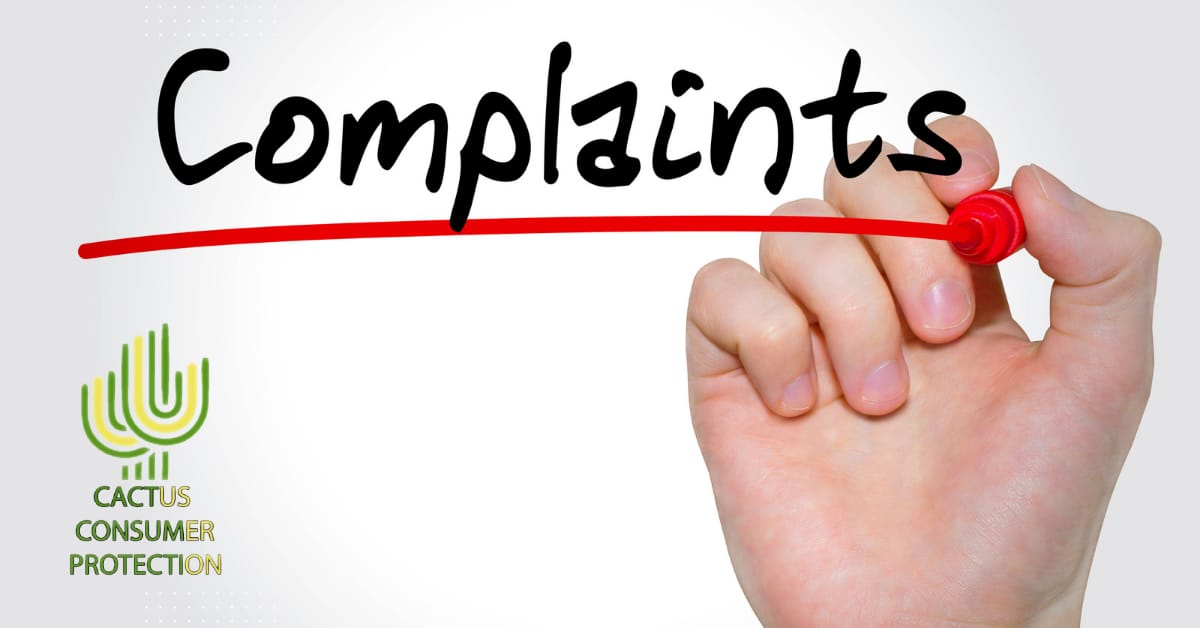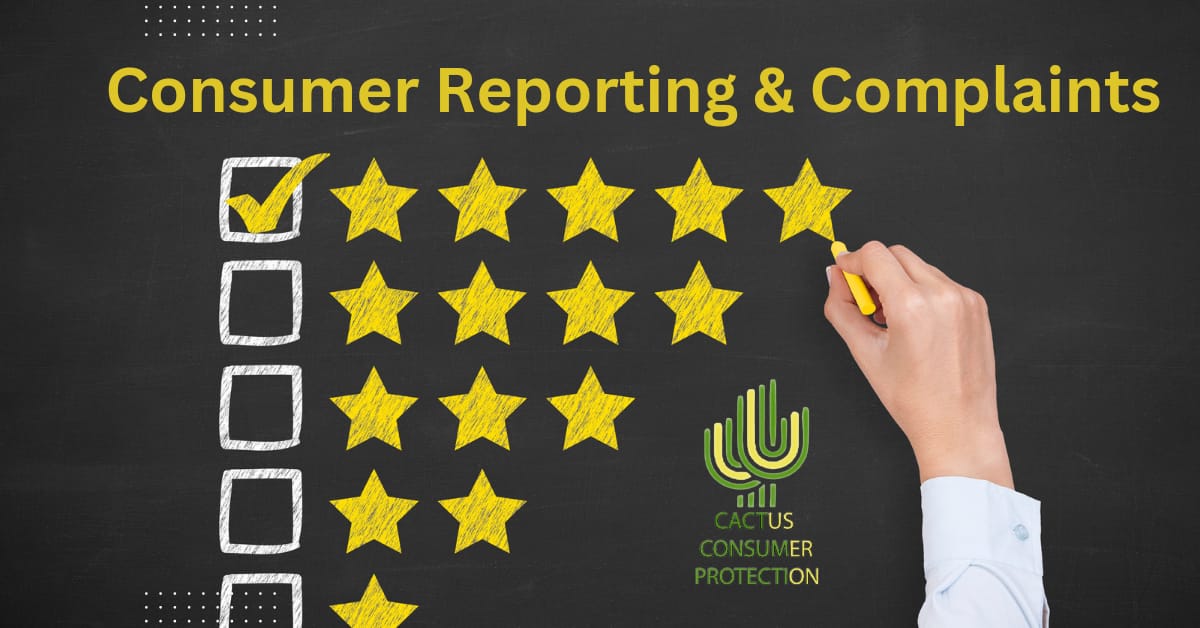In the area of customer advocacy and business accountability, the Cactus Consumer Protection (CCP) stands as a trusted organization, ensuring that businesses maintain high standards and consumer reporting & protection. However, understanding when and how to file a complaint with the CCP can be vital for seeking a resolution to issues you encounter with businesses.
Exhaust Local Resolution Channels:
Before reaching out to the CCP, make sure you’ve attempted to address the issue directly with the business. Reach out to their customer service or management to voice your concerns and seek a resolution.
Unresolved Disputes:
If you’ve made reasonable attempts to communicate with the business, but the issue remains unresolved, it might be time to consider filing a consumer complaint with the CCP.
Key Issues to Report:
File a complaint with the CCP when the issue pertains to matters such as business verification, company authenticity, address verification services, consumer complaints, and consumer protection.
Gather Documentation:
Collect all relevant documentation, including receipts, emails, invoices, and records of communication with the business. These materials will support your complaint and enhance its credibility.
Online Complaint Submission:
Visit CCP’s official website and navigate to the complaint submission section. Provide accurate and detailed information about the issue, including the business’s name, location, and a thorough description of the problem.
Be Concise and Specific:
When describing the issue, be concise yet specific. Highlight the main problem and its impact on you as a customer.
Patiently Await Resolution:
Once the complaint is filed, the CCP will typically forward it to the concerned business. Give the business a reasonable amount of time to respond and attempt to resolve the issue.

CCP’s Role In Consumer Reporting:
The CCP acts as a mediator between you and the business, aiming to facilitate a resolution. They do not have legal authority but can influence a business’s reputation.
Follow-up:
If you don’t receive a response from the business within a reasonable time, or if their response is unsatisfactory, you can follow up with the CCP. They can offer further assistance in resolving the matter.
Keep Documentation:
Throughout the process, maintain records of all communication with the business and the CCP. This documentation can be valuable if the situation escalates.
Understand CCP Process:
The CCP also provides ratings for businesses based on factors like complaint history, transparency, and business practices. Check the CCP’s website to gauge the business’s reputation before engaging with them.
Remember, the CCP serves as a platform to encourage ethical business practices and customer protection. Filing a complaint with the CCP can be an effective way to seek a resolution when dealing with unresolved issues. However, always approach the process with accurate information, a desire for fair resolution, and patience as the process opens.
Consumer reporting is a significant aspect of modern financial systems, influencing a wide range of financial decisions in people’s lives. Understanding how credit reports and credit scores work is important for individuals who want to manage their financial health and make informed credit-related decisions.
Overall, consumer reporting in Panama, Canada, and the USA serves a crucial role in businesses, and it’s important for individuals to be aware of their rights and responsibilities regarding their issues. Canada has regulations to ensure the fairness and responsibility for consumer information.
PIPEDA:
The main piece of legislation governing credit reporting in Canada is the Personal Information Protection and Electronic Documents Act (PIPEDA). This law outlines how personal information, including credit information, should be collected, used, and protected by businesses and organizations. In Canada is similar to the concept in other countries like Panama and the USA with its own set of regulations and credit reporting agencies.
FCRA:
Due to the sensitive nature of credit information, laws like the Fair Credit Reporting Act (FCRA) in the United States govern how CRAs can collect, use, and share customer information. Consumers have the right to request free copies of their credit reports and dispute any inaccuracies.
Consumer reporting often involves the collection, maintenance, and dissemination of customer credit information. These agencies gather data about individuals’ credit-related activities, such as borrowing and repaying loans, credit card usage, and payment history. This information is then used to create credit reports and credit scores, which play a crucial role in determining an individual’s creditworthiness and ability to access credit.
